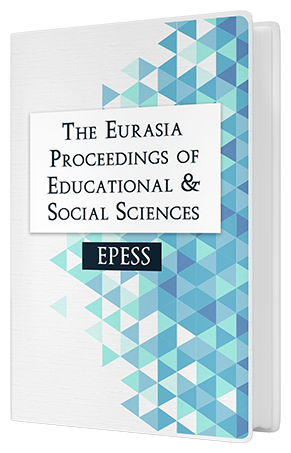Customer Complaints about E-Commerce Sites: Content Analysis
Keywords:
E-Commerce, Consumer complaints behavior, Content analysisAbstract
The number of ınternet users who are online shopping day by day increases. The development of the Internet has enable a more effıcıent means for consumers to gather product information, compare prices, and make purchases at any time and from anywhere. Growth in e-commerce volume suggests the need for an increase of investigations into online complaint activity. The Web-based consumer opinion platforms enable customers to share their opinions on and experiences with, goods and services with a other consumers. The purpose of this paper is to identify the dimensions of customers' e-complaints behavior towards e-commerce sites, and determine the rate of e-commerce sites’ managements respondency to these complaints. The data obtained from one of the most popular Turkish e-complaint sites “Sikayetvar.com”. In total, 6 e-commerce sites with highest complaint rates were selected as cases of the study. The consumer complaints from these e-commerce sites were analyzed through a qualitative content analysis. 26 January 2018 and 2017 were selected as the timespan for the complaint research. We chose 6 e-commerce sites, and we took 50 complaints from every group, a total of 300 consumer complaints for the analysis. The results indicated that, the subjects that the consumers most complain about have been identified as defective products, product return, refund, and behavior of call center employees. The most prominent problems with regard to order processing are observed as cancellation of order and non-delivery related issues.Downloads
Published
Issue
Section
License
Copyright (c) 2018 The Eurasia Proceedings of Educational and Social Sciences

This work is licensed under a Creative Commons Attribution-NonCommercial-ShareAlike 4.0 International License.
The articles may be used for research, teaching, and private study purposes. Any substantial or systematic reproduction, redistribution, reselling, loan, sub-licensing, systematic supply, or distribution in any form to anyone is expressly forbidden. Authors alone are responsible for the contents of their articles. The journal owns the copyright of the articles. The publisher shall not be liable for any loss, actions, claims, proceedings, demand, or costs or damages whatsoever or howsoever caused arising directly or indirectly in connection with or arising out of the use of the research material. All authors are requested to disclose any actual or potential conflict of interest including any financial, personal or other relationships with other people or organizations regarding the submitted work.




